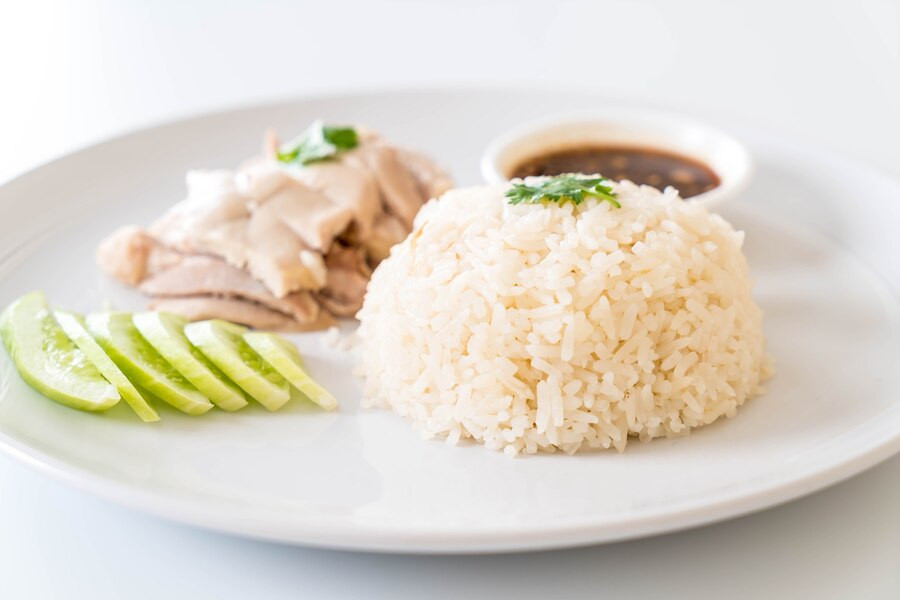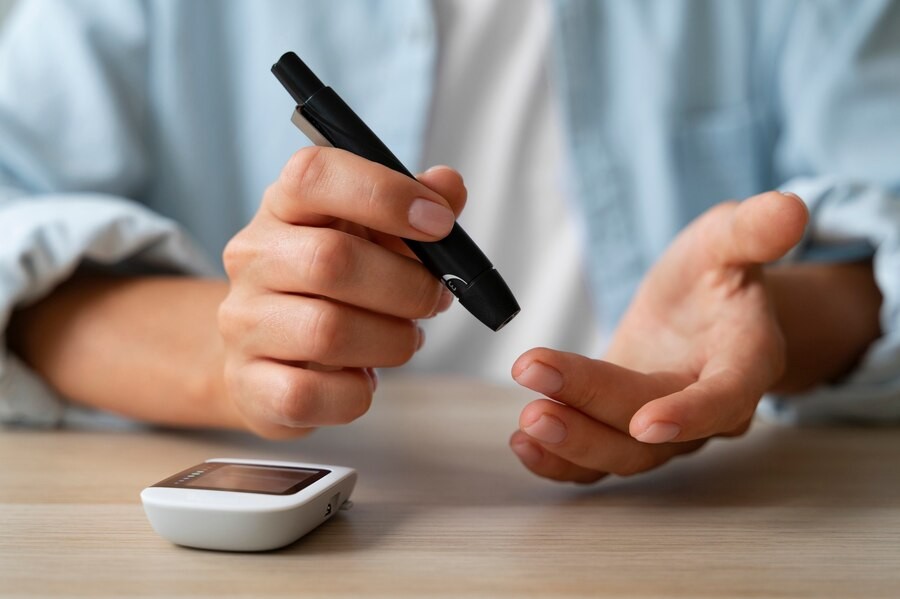Diabetes adalah kondisi kesehatan yang memerlukan perhatian khusus terhadap asupan makanan, terutama karbohidrat. Ini bisa menjadi hal yang cukup sulit bagi masyarakat Indonesia dengan diabetes. Terutama karena nasi adalah makanan pokok yang kaya akan karbohidrat.
Anda mungkin ingin tahu masih bolehkah penderita diabetes makan nasi putih? Untuk menjawab pertanyaan ini, Anda harus memahami bagaimana nasi putih memengaruhi kadar gula darah dan alternatif lain yang mungkin lebih sehat.
Nasi Putih dan Gula Darah
Nasi putih merupakan makanan pokok masyarakat Indonesia yang selalu hadir dalam menu sehari-hari. Nasi putih memiliki indeks glikemik yang tinggi. Indeks glikemik ini mengukur seberapa cepat karbohidrat dalam makanan diubah menjadi glukosa dalam darah.
Makanan dengan indeks glikemik tinggi seperti nasi putih, dapat menyebabkan lonjakan gula darah yang cepat. Bagi penderita diabetes, menjaga stabilitas gula darah adalah kunci dalam mengelola kondisi mereka. Inilah mengapa penderita diabetes sering kali dianjurkan membatasi makanan dengan indeks glikemik yang tinggi seperti nasi putih.
Baca Juga: Dampak Negatif Diabetes pada Wanita
Apakah Nasi Putih Sepenuhnya Dilarang untuk Penderita Diabetes?
Meskipun nasi putih memiliki potensi meningkatkan kadar gula darah, bukan berarti orang dengan diabetes tidak boleh mengonsumsi nasi sama sekali. Nasi putih masih boleh dikonsumsi, yang paling penting adalah mengontrol porsi dan memperhatikan kombinasi makanan lain yang dikonsumsi bersamaan dengan nasi putih.
Untuk memperlambat penyerapan gula dan mengurangi lonjakan darah, Anda perlu mengombinasikan nasi putih dengan sayuran berserat tinggi, protein, atau lemak sehat. Artinya, perlu pengaturan porsi dan komposisi makanan sebagai kunci mengonsumsi nasi putih secara aman.
Cobalah juga untuk tidak menjadikan nasi putih sebagai makanan utama setiap hari. Pertimbangkan untuk menggantinya dengan alternatif yang lebih sehat.
Baca Juga: Manfaat Oatmeal bagi Penderita Diabetes
Alternatif Nasi yang Lebih Sehat
Apabila Anda menderita diabetes, tetapi masih ingin mengonsumsi nasi, Anda mungkin perlu mempertimbangkan alternatif lain selain nasi putih. Misalnya saja nasi merah, nasi hitam, nasi Basmati merah, atau nasi jagung yang memiliki indeks glikemik lebih rendah dibandingkan nasi putih.
Jangan lupa untuk membuat hidangan lebih seimbang. Padukan pengganti nasi putih dengan protein tanpa lemak dan sayuran non-tepung. Perhatikan pula porsi makan yang Anda konsumsi agar tetap dalam batas yang sesuai agar tidak terjadi lonjakan gula darah.
Walaupun memiliki penyakit yang sama, setiap orang dengan diabetes memiliki kebutuhan yang berbeda-beda, tergantung pada tingkat aktivitas, berat badan, dan kondisi kesehatan umum yang dimiliki.
Untuk mengelola kadar gula darah dan kesehatan secara keseluruhan, sangat disarankan untuk tetap berkonsultasi dengan dokter atau ahli gizi sebelum membuat perubahan signifikan pada pola makan. Dokter atau ahli gizi dapat memberikan panduan yang tepat mengenai jumlah dan jenis karbohidrat yang aman dikonsumsi untuk mengelola kadar gula darah.
Memiliki pertanyaan lain terkait dengan pengelolaan kadar gula darah? Anda bisa berkonsultasi dengan dokter melalui aplikasi Ai Care yang bisa diunduh di App Store atau Play Store.
Mau tahu informasi seputar nutrisi, makanan dan tips diet lainnya? Cek di sini, ya!
- dr Nadia Opmalina
Alexandra Benisek and Lori M. King, PhD (2024). Best and Worst Foods for Diabetes. Available from: https://www.webmd.com/diabetes/diabetic-food-list-best-worst-foods
USA Rice (2022). Can You Eat White Rice If You Have Diabetes?. Available from: https://www.usarice.com/thinkrice/detail-pages/blog/can-you-eat-white-rice-if-you-have-diabetes
Natalie Silver (2023). Can Eating Rice Affect My Diabetes?. Available from: https://www.healthline.com/health/diabetes/diabetes-rice
Health Direct (2022). Glycaemic index (GI). Available from: https://www.healthdirect.gov.au/glycaemic-index-gi
Diabetes UK. Glycaemic Index and Diabetes. Available from: https://www.diabetes.org.uk/guide-to-diabetes/enjoy-food/carbohydrates-and-diabetes/glycaemic-index-and-diabetes
Elizabeth Woolley (2024). How Fiber Helps Manage Diabetes. Available from: https://www.verywellhealth.com/soluble-and-insoluble-fiber-1087462












